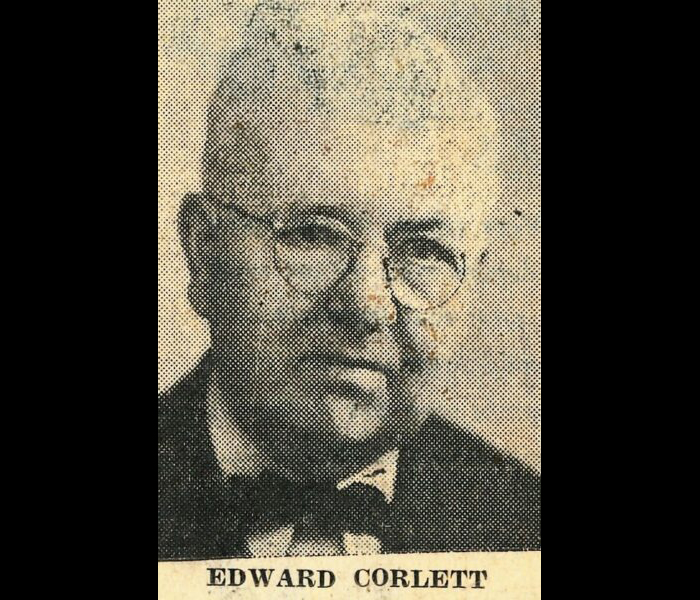Wesley boy changes local politics

By Sandy Vasko
We are now into that seemingly endless time, that between the primaries and the November election. And as far as I am concerned, the election can’t come fast enough. Primaries have not always been a part of politics in Illinois. In Will County, their existence is mainly due to a boy from Wesley.
The Corlett family was well known in Wesley Township, all of them were fine farmers, and most of them involved in local politics. So, when young Edward Corlett got interested in politics and the law, it was no surprise.
We read Edward’s early life from the Wilmington Advocate Aug. 5, 1904: “Attorney Corlett is a Will County boy, being born in the Town of Wesley. He was thrown upon his own resources at sixteen years of age. He worked in the coalmines; worked as a farm-hand, and attended the public schools in the winter. He saved his earnings with the view of studying law. He graduated from the Bloomington Law School, taking the Degree of Bachelor of Laws in the class of 1894. He immediately opened an office in this city and entered upon the practice of his profession, and since that time has been actively engaged in the general practice of the law.”
We also learn more about his early political career in Wilmington: “While Ed, as he is familiarly known here, is not a politician, yet he has always taken an interest in politics, always being a staunch Republican. He was city Attorney of this city from 1897 to 1899. In 1899 he received the nomination of the Republican Party by acclamation for Mayor; was elected, his term of office expiring in 1901. So satisfactory was his administration that he was tendered a renomination by acclamation, which he declined.”
Corlett declined the nomination for several reasons. One was that he had his sights set a little higher. He moved to the county seat, Joliet, where he was closer to the heart of the real politics of the county. But, and please forgive me for using this over-used word, he was a political “maverick.”
He disliked the political caucuses where nominations for office were based almost solely on who you knew, instead of what you knew. Instead, he favored an early election known as the primaries, where the people could choose the candidate from each party as well as the eventual winner at the general election. The old line Republicans in the County saw the primaries as a loss of their political influence.
In 1902, Corlett circulated petitions to have the primary issue put on the ballot, but failed to obtain the required number of signatures before the deadline. However, by 1904, he had his ducks in a row and attacked the system in two ways. First, he obtained the required number of signatures and succeeded in putting before the people approval of the primary system. Second, he publicly announced his candidacy for State’s Attorney. Previous to this, all candidates petitioned the Party for the nomination.
In an interview in the Advocate he said, “I wish to say that I am a candidate for the nomination for State’s Attorney before the next republican county convention, and I am talking the matter over with the people. I desire to make my candidacy known to the Republicans of Will county, and ask them to give it consideration. I think I am qualified to discharge the duties of the office, and if the Republicans of the County think so, and believe that my nomination will conserve the interest of the Republican Party, I would indeed by very grateful to receive from the hands of the party, the nomination. If they think otherwise I shall not complain, and in any event the Republican ticket will have no more enthusiastic supporter than my self.”
The Republican Party did think otherwise and failed to nominate him to run for State’s Attorney. But Corlett was not disappointed; the voters overwhelmingly voted to adopt the primary system.
We read on December 9, 1904 in the Joliet Herald: “Wednesday afternoon Judge Haven issued an order from the county Court announcing that on and after this date the primary election law, as provided by statute and adopted by the people of Will County at the recent election, is in effect. The formal order brings about quite a revolution in our election and primary system. At every primary held in this county where delegates are to be chosen to a convention the primary law applies. The law will apply to the city and township elections next spring in all towns and incorporated villages where delegate conventions are held.”
Corlett went on to have an amazing life, which included being general manager and publisher of the Joliet Herald News for 12 years, attorney of the penitentiary commission for 18 years and planning Stateville Penitentiary.
He died Dec. 5, 1951, having made a lasting mark on Will County politics.